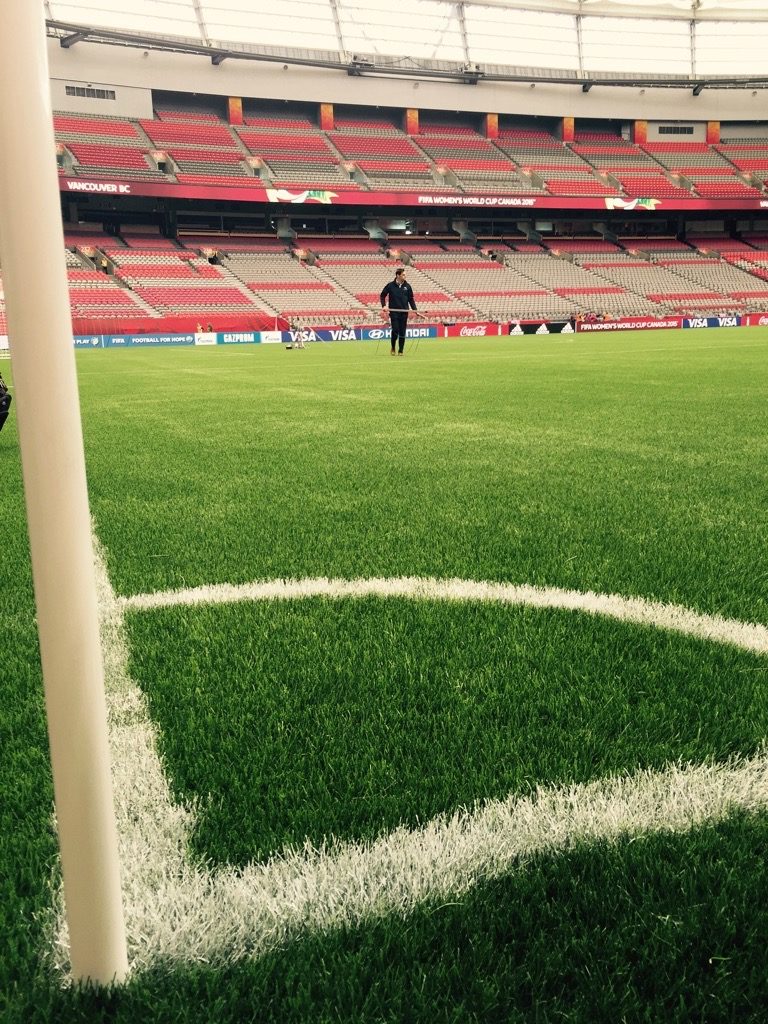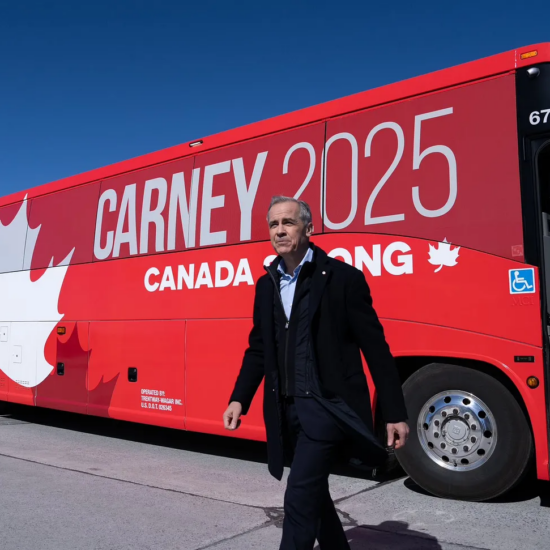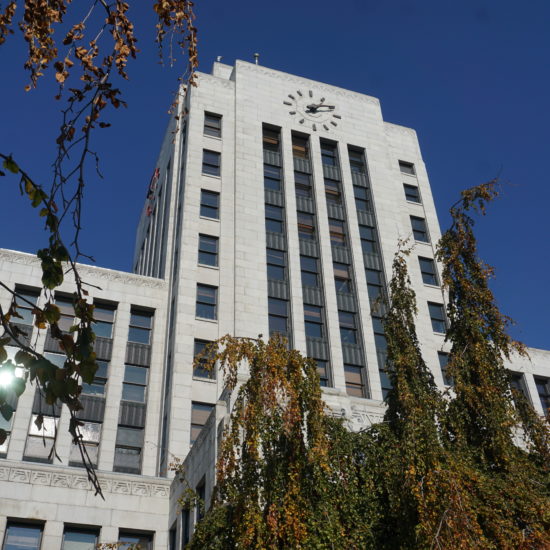
Bob Mackin
The 2026 World Cup is coming to Vancouver, Seattle and Toronto.
But not Edmonton.

West Vancouver’s Victor Montagliani announces Vancouver will host 2026 World Cup matches (FIFA/YouTube)
During a televised special on June 16 in New York, soccer’s world governing body unveiled the 16 cities that will host the world’s biggest tournament in four years.
Twenty-two cities were in the running after FIFA awarded the expanded, 48-nation event to the U.S.-led, three-nation bid in 2018. Mexico previously hosted in 1970 and 1986, while the U.S. was 1994’s host. It will be Canada’s first time.
Seventy games are scheduled to be spread out around U.S. markets Atlanta, Boston, Dallas, Houston, Kansas City, Los Angeles, Miami, New York/New Jersey, Philadelphia, Seattle and San Francisco.
Vancouver and Toronto will split 10. Guadalajara, Mexico City and Monterrey will split the other 10. B.C. Place Stadium, site of the 2015 FIFA Women’s World Cup, is likely to see first and second round matches only.
Where will the opening match and final take place?
“We’ll take our time with that decision,” said FIFA president Gianni Infantino.
For Vancouver and Toronto taxpayers, it won’t be cheap.
The B.C. NDP government said it could cost taxpayers up to $260 million. In 2018, Premier John Horgan said FIFA’s demands were too much and he didn’t want to give the Zurich-based organization a “blank cheque.” Last July, Montreal withdrew, citing high costs, so Vancouver was back in the running.
B.C. Tourism Minister Melanie Mark expects the federal government to contribute to the costs. City of Vancouver has pledged $5 million for a live site.
Mayor Kennedy Stewart, in a prepared statement, said he was thrilled.

B.C. Place Stadium’s Polytan Ligaturf synthetic pitch installed for the Canada 2015 Women’s World Cup (Mackin)
“This is a once in a generation opportunity for soccer fans, for our tourism sector, and for all British Columbians,” Stewart said.
Vancouver city hall staff have not provided a breakdown, but staff at Toronto city hall did. Mayor John Tory is asking the federal and Ontario governments to pay two-thirds of the expected $290 million bill, or $177 million. FIFA is expected to pay just $12.7 million of the cost in Toronto.
Back in 2018, Toronto bureaucrats estimated the cost to be a relatively small $30 million to $45 million, but the Canadian Soccer Association and FIFA have since shifted more hosting requirements onto city hall, Exhibition Place, Destination Toronto and the owners of Toronto FC.
“This exercise – which considered the full breadth of the host city agreement – saw a rise in costs in several areas such as security, stadium adaptation and expansion, and preparation of training sites,” said a report to staff in March. “City staff anticipate that there are areas where savings can be secured given that there is time available for lower cost alternatives to be identified and for FIFA requirements to be negotiated.”
Toronto has committed to providing FIFA with BMO Field, training sites, a 34-day FanFest and transportation and safety and security services. FIFA is also demanding an addendum to the 2018 agreement for upgrades and rental costs at BMO Field.
In return for spending $290 million, Toronto estimates a $307 million economic impact, with 3,300 jobs and 174,000 overnight visitors, resulting in $3.5 million municipal accommodation tax revenue.
Few details are available about Vancouver’s bid, beyond B.C. Place. The 1983-opened stadium underwent a $563 million renovation in 2011 and could be in line for further upgrades by 2026. During the hosting of nine Women’s World Cup matches in 2015, additional temporary space was required to fulfil hospitality commitments and a broadcast compound was set-up across Pacific Boulevard, beside the Plaza of Nations.
The B.C. government claims that Destination B.C. and B.C. Stats estimate the west coast tourism industry could attract more than $1 billion in new revenue “during and in the five years following the event.” The Ministry did not release the methodology.
Prof. Victor Matheson, a sports economist at the College of the Holy Cross in Worcester, Mass., has studied mega-events. While there can be benefits, they don’t live up to the hype generated by the organizers who benefit from the subsidies.
Large sporting events like World Cups and Olympics supplant, rather than supplement, the regular tourist economy, Matheson said.
“There’s no reason that again, taxpayers in Vancouver or in Boston, where I am, should be subsidizing a private entity run by millionaires generating billions of dollars,” Matheson said.
After Russia hosted the 2018 World Cup, FIFA reported that US$5.35 billion revenue from the tournament contributed to its record US$6.42 billion, four-year haul. Its 2021 financial statements boast US$3.4 billion assets and US$1.6 billion in reserves.
Support theBreaker.news for as low as $2 a month on Patreon. Find out how. Click here.











